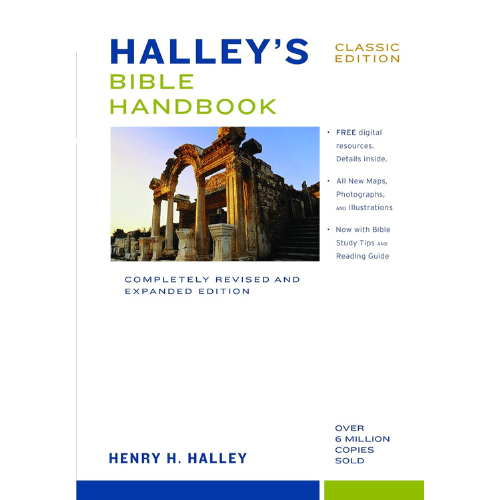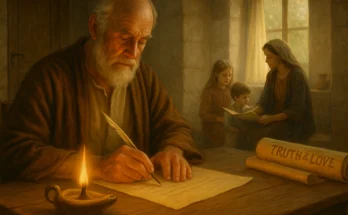Some chapters grab our hearts right away — Luke chapter 15 is one of them. In this powerful section of Scripture, Jesus shares three unforgettable parables. Each one highlights something lost—a sheep, a coin, and a son. Yet in every story, what’s lost is found, and what’s broken is lovingly restored.
We often stumble, wander, or even run the other way. But Luke chapter 15 reminds us that God never gives up on us. In fact, He actively seeks us out. Through the shepherd’s search, the woman’s careful sweep, and the father’s patient wait, we catch a glimpse of heaven’s heart.
Parables: The Mysteries of God’s Kingdom Revealed Through the Stories Jesus Told by John MacArthur
Even more, this chapter teaches us about repentance. Not as a guilt trip—but as a return home. It’s the moment we come to our senses, turn toward God, and find He’s been watching for us all along. That’s the beauty of grace. It meets us in the far country and walks us back to love.
Luke chapter 15 isn’t just a story for someone else — it’s for all of us. Whether we’ve strayed a little or a lot, the message is clear: God rejoices when we come back. Heaven throws a celebration over just one sinner who repents.
As we walk through this chapter together, we’ll discover the depth of God’s mercy, the joy of restoration, and the calling to reflect that same grace to others. Let’s begin this journey of grace, repentance, and restoration with open hearts and ready minds.
The Setting and the Audience (Luke 15:1–2)
“Now the tax collectors and sinners were all drawing near to hear him. And the Pharisees and the scribes grumbled, saying, ‘This man receives sinners and eats with them.’” (Luke 15:1–2, ESV)
Jesus is surrounded by two groups: the sinners who are drawn to Him and the religious leaders who are offended by Him. The religious leaders believed that holiness meant separation from the unclean, but Jesus shows that true holiness seeks to restore the lost. This tension sets the stage for the three parables that follow—all told to defend His ministry to the outcast and to reveal the Father’s heart.
The Parable of the Lost Sheep (Luke 15:3–7)
“What man of you, having a hundred sheep, if he has lost one of them, does not leave the ninety-nine…” (v. 4)
The shepherd leaves the ninety-nine to find just one lost sheep — showing the value of every single soul. This parable speaks of God’s active pursuit. He doesn’t wait for the lost to find their way; He goes after them. When the sheep is found, the shepherd rejoices and invites others to celebrate. This represents the joy in heaven over one sinner who repents.
The Parable of the Lost Coin (Luke 15:8–10)
“Or what woman, having ten silver coins, if she loses one coin, does not light a lamp and sweep the house…” (v. 8)
In this parable, a woman searches diligently for a lost coin—a small object, but deeply valuable to her. She lights a lamp and sweeps the house until she finds it. This illustrates how God shines light into our dark places and cleans house to bring us home. Again, the story ends in celebration. There is joy in the presence of angels over one sinner who repents.
The message is clear: No one is too small or insignificant in God’s eyes. He searches with care and purpose.
The Parable of the Lost Son (Luke 15:11–32)
“There was a man who had two sons…” (v. 11)
A. The Rebellion (vv. 11–16)
The younger son demands his inheritance early—a shocking insult in Jewish culture. He essentially says, “I wish you were dead.” He leaves home, wastes everything, and ends up feeding pigs — a symbol of total disgrace for a Jewish man. His fall reminds us how far sin can take us when we choose our own way over God’s.
B. The Repentance (vv. 17–20a)
“But when he came to himself…” (v. 17)
The turning point begins with self-awareness. He realizes his sin and decides to return — not with demands, but with humility. This is a beautiful picture of repentance. It starts in the heart and moves us toward restoration.
Notice: he doesn’t expect to be welcomed as a son — just as a servant.
C. The Father’s Grace (vv. 20b–24)
“But while he was still a long way off, his father saw him…” (v. 20)
The father runs to meet his son—an undignified act for an older man in Jewish culture. He embraces him, clothes him, and restores him fully—not as a servant, but as a beloved son. This parable reveals the overwhelming grace of God—He runs to meet the repentant, even before we finish our apology.
D. The Older Brother’s Resentment (vv. 25–32)
The older brother refuses to join the celebration. He feels cheated and self-righteous, even though he’s stayed close to home. Many beginners relate to the younger son, but some may find themselves in the shoes of the older brother. The father gently pleads with him, reminding him that everything the father has is already his, but his brother was dead and is alive again.
Halley’s Bible Handbook, Classic Edition
The bestselling Bible handbook of all time with millions of copies sold, the Halley’s Bible Handbook makes the Bible’s wisdom and message accessible to everyone.
Key Themes for Reflection
- God seeks the lost — whether wandering sheep, forgotten coins, or rebellious children.
- Repentance leads to restoration — not shame, but joy and full acceptance.
- Heaven rejoices over the one who returns — God isn’t reluctant to forgive; He’s eager.
- Self-righteousness blinds us to grace — we must guard our hearts from pride and resentment.
Application for Our Lives
- Are we willing to admit when we’ve strayed and humbly return to God?
- Do we celebrate when others receive grace, or do we grumble like the Pharisees?
Let’s remember: God never stops loving us—even when we’re lost. And He calls us to reflect that same love to others.
Final Thoughts on Luke Chapter 15
Luke chapter 15 calls us to see God’s heart in a new light—full of mercy, grace, and joyful restoration. Each parable of Jesus reminds us that no one is too lost, too broken, or too far gone. Whether we’re the wandering sheep, the misplaced coin, or the wayward son, God seeks us with relentless love.
This chapter also challenges us to rejoice when others return. Just as heaven celebrates, we’re called to show that same grace. It’s not enough to know the stories — we must live them. Let’s forgive quickly, love deeply, and welcome freely.
Now is the time to reflect on the deeper meaning behind Luke chapter 15. Meditate on these verses. Ask the Lord where your heart aligns — or resists. His Word brings wisdom, healing, and direction into every area of life.
Let’s not wait for another time to return or rejoice. The Father is already running toward us with open arms. Will we meet Him?
We encourage you to continue your Bible study journey. Visit our Chapter Outlines page and dive deeper into the life-changing truths of God’s Word. Each chapter holds something rich and relevant for your walk of faith.
Let Luke chapter 15 remind you that grace is always reaching, repentance is always welcomed, and restoration is always possible. Keep studying. Keep growing. And keep trusting the One who still seeks the lost.
Frequently Asked Questions (FAQ) About Luke Chapter 15
1. What is the main message of Luke chapter 15? Luke chapter 15 reveals God’s heart for the lost. Through three parables, Jesus teaches that heaven rejoices when sinners repent and return.
2. Who do the lost sheep, coin, and son represent? Each lost item represents people who have wandered from God—whether through sin, neglect, or rebellion. God actively seeks to restore them.
3. Why did Jesus tell these three parables? Jesus told these stories in response to the Pharisees’ criticism. He wanted to show that God’s love reaches beyond religious expectations.
4. What can we learn about repentance from Luke chapter 15? Repentance means turning back to God with humility. It’s not about earning forgiveness, but receiving it through His grace and mercy.
5. How should we respond to the message of Luke chapter 15? We should celebrate when others come to faith, reflect on our own need for grace, and trust God to restore what’s been lost.




